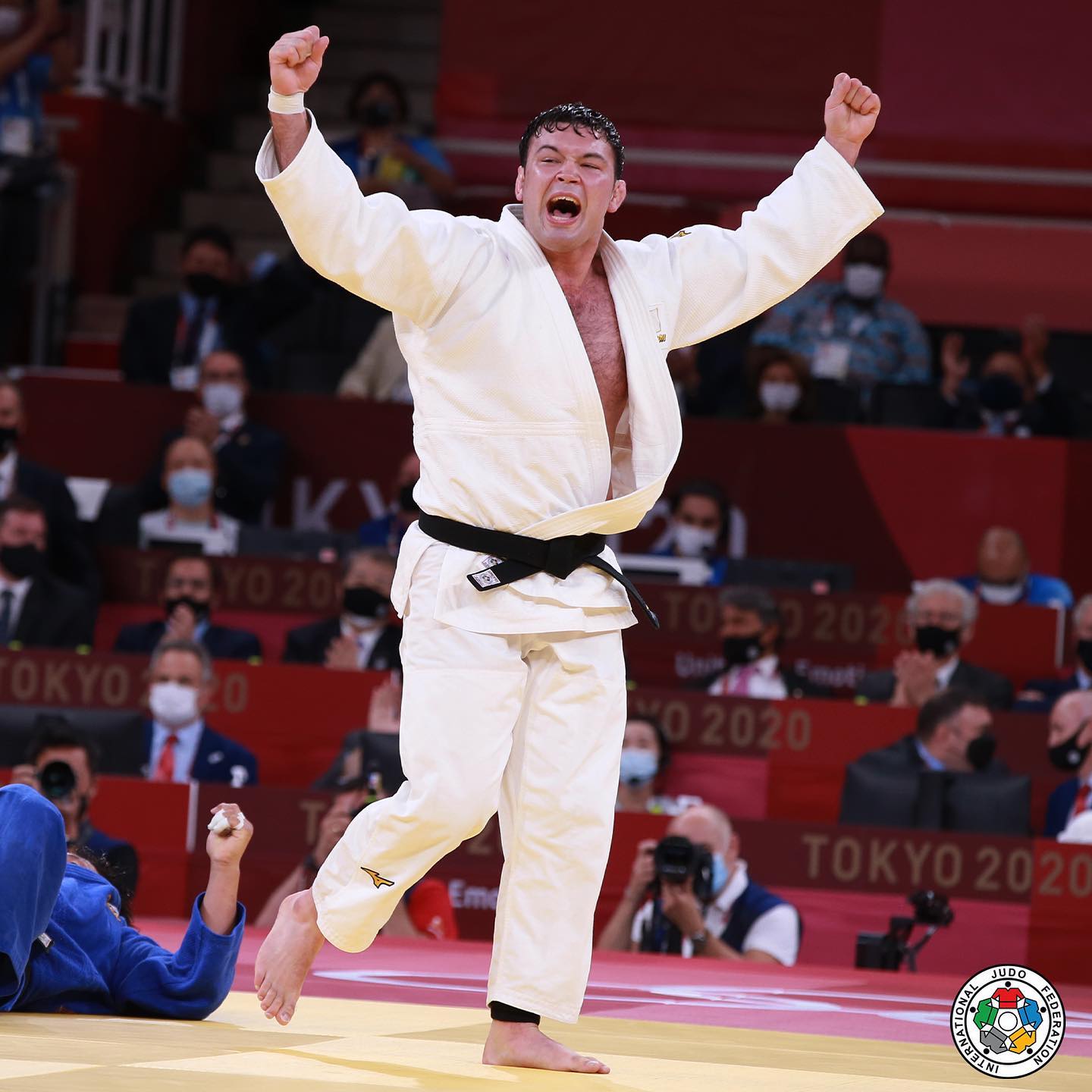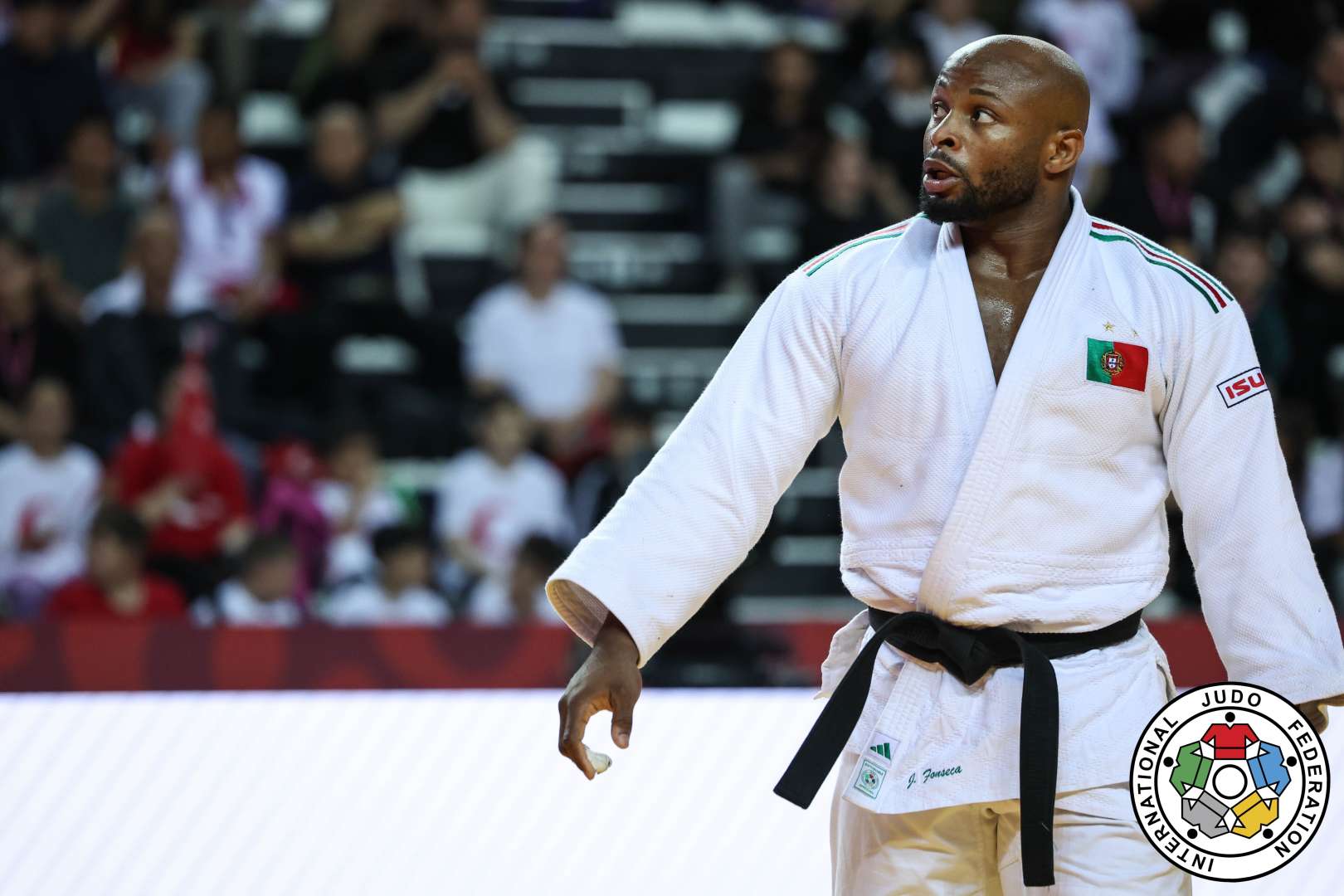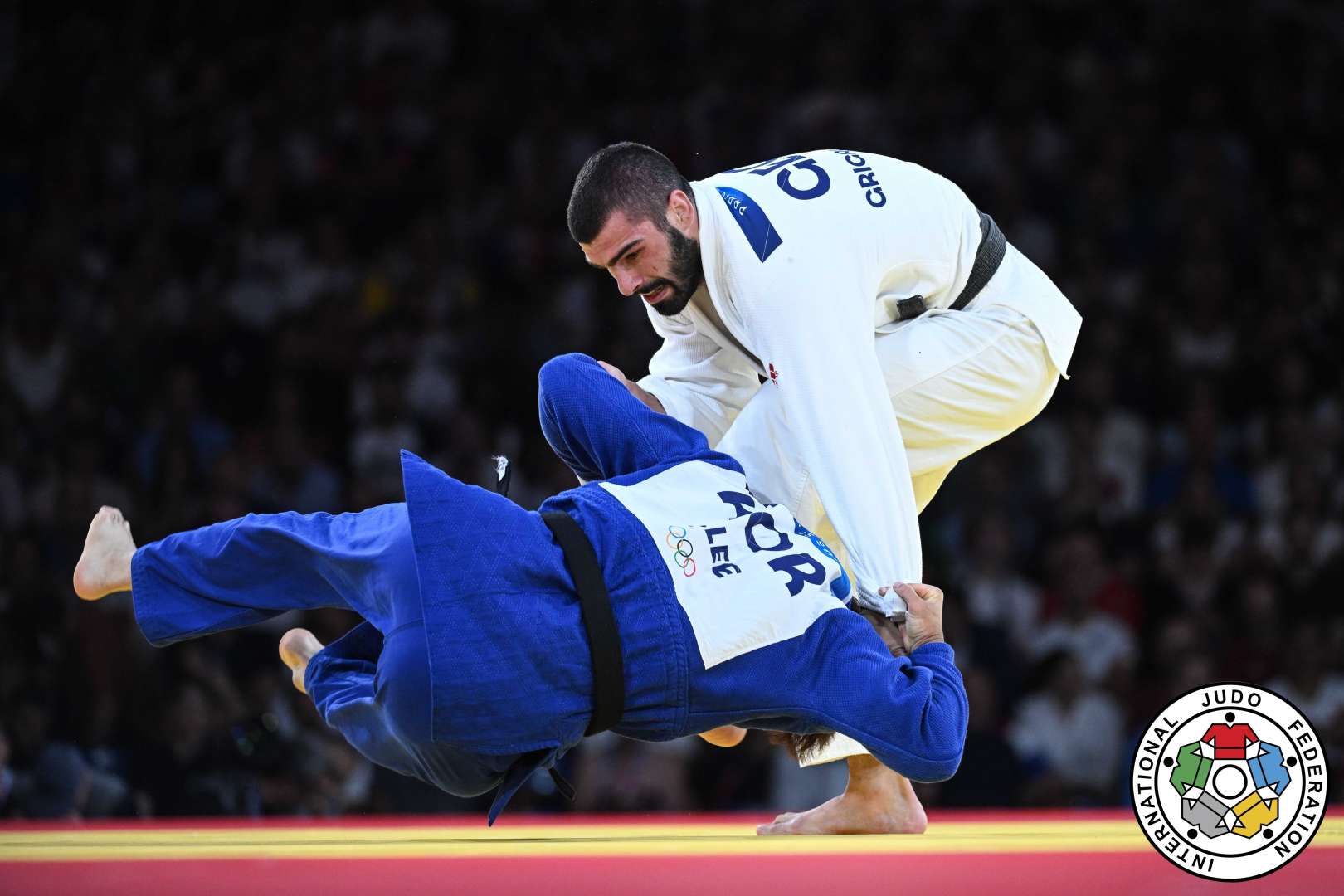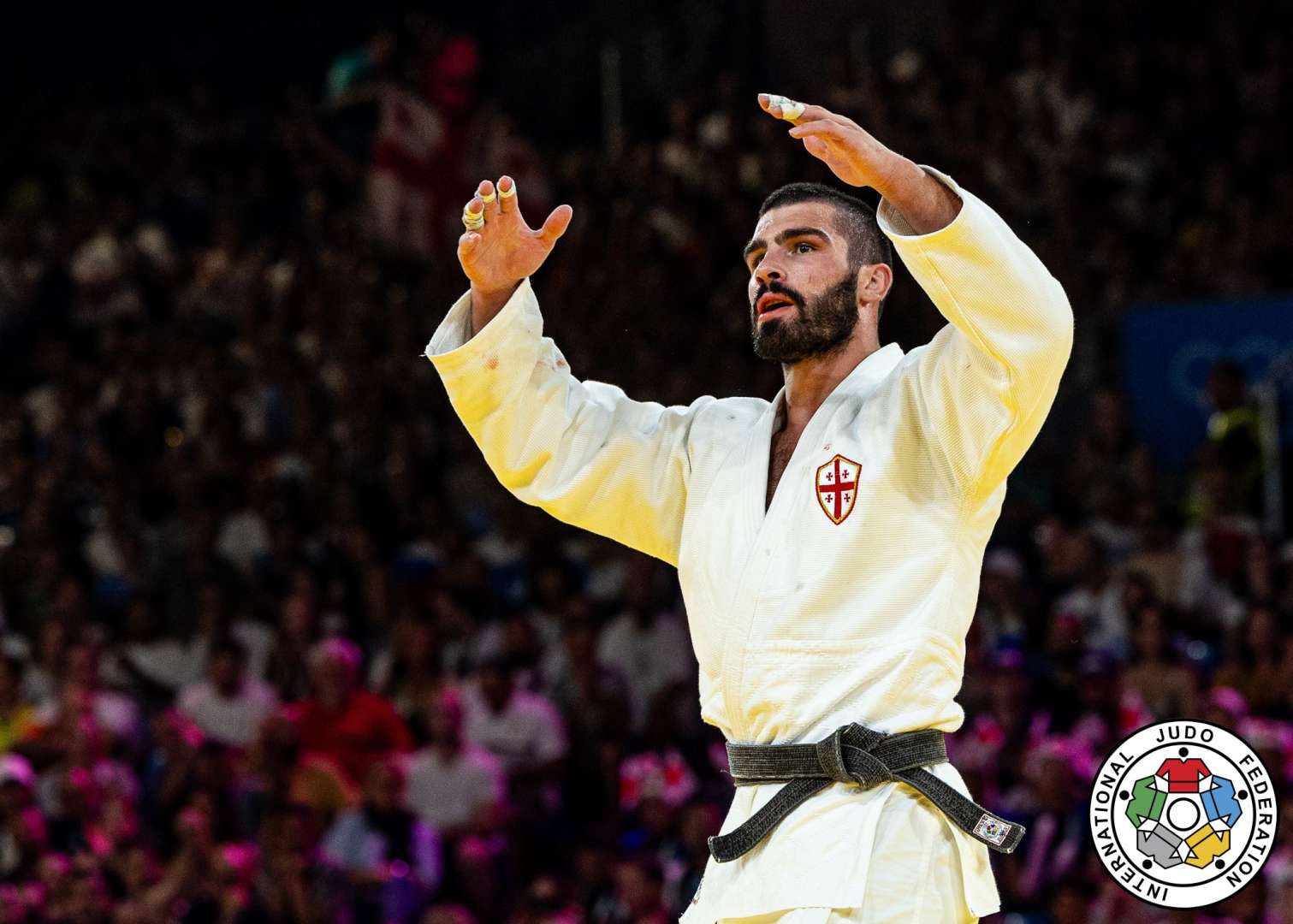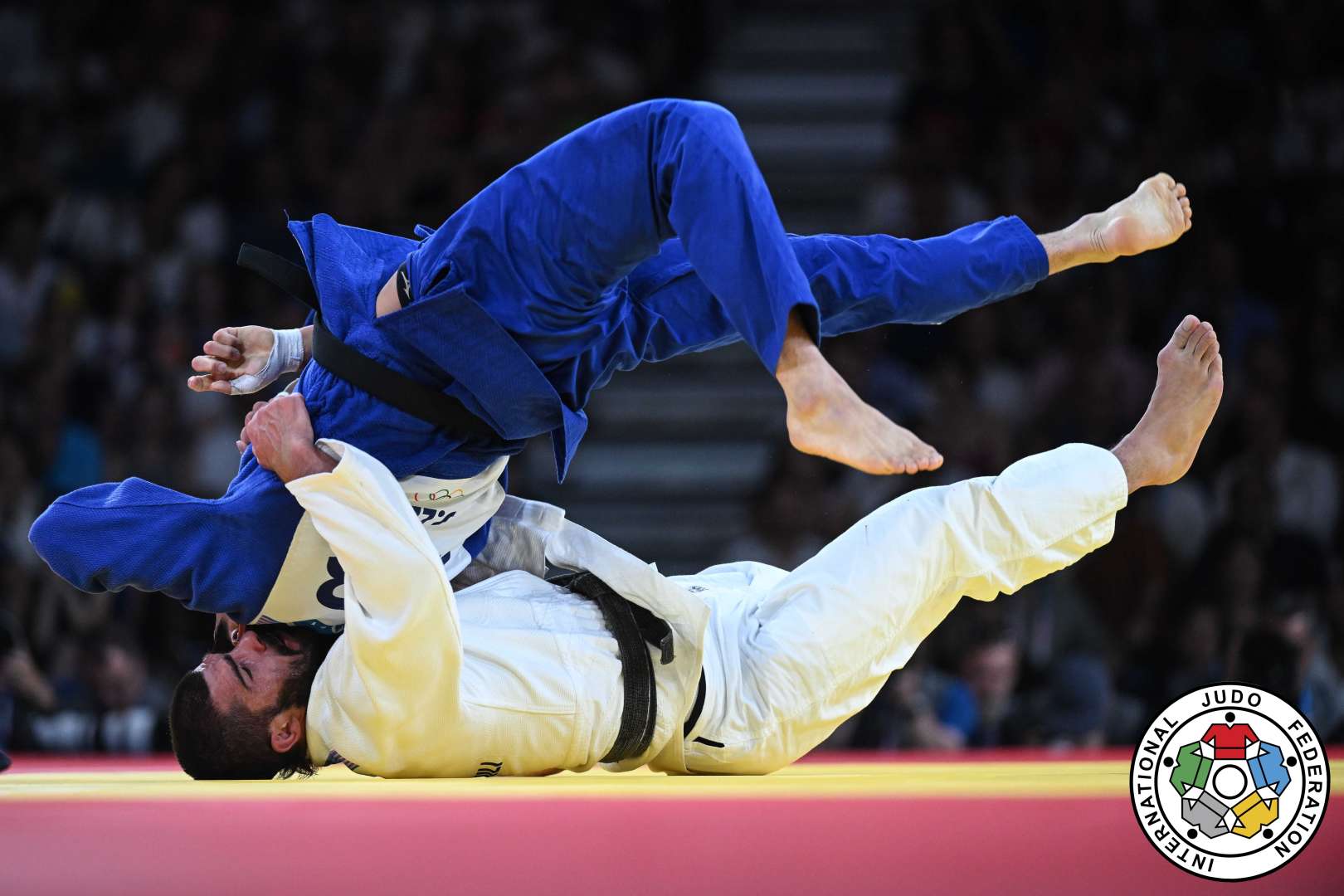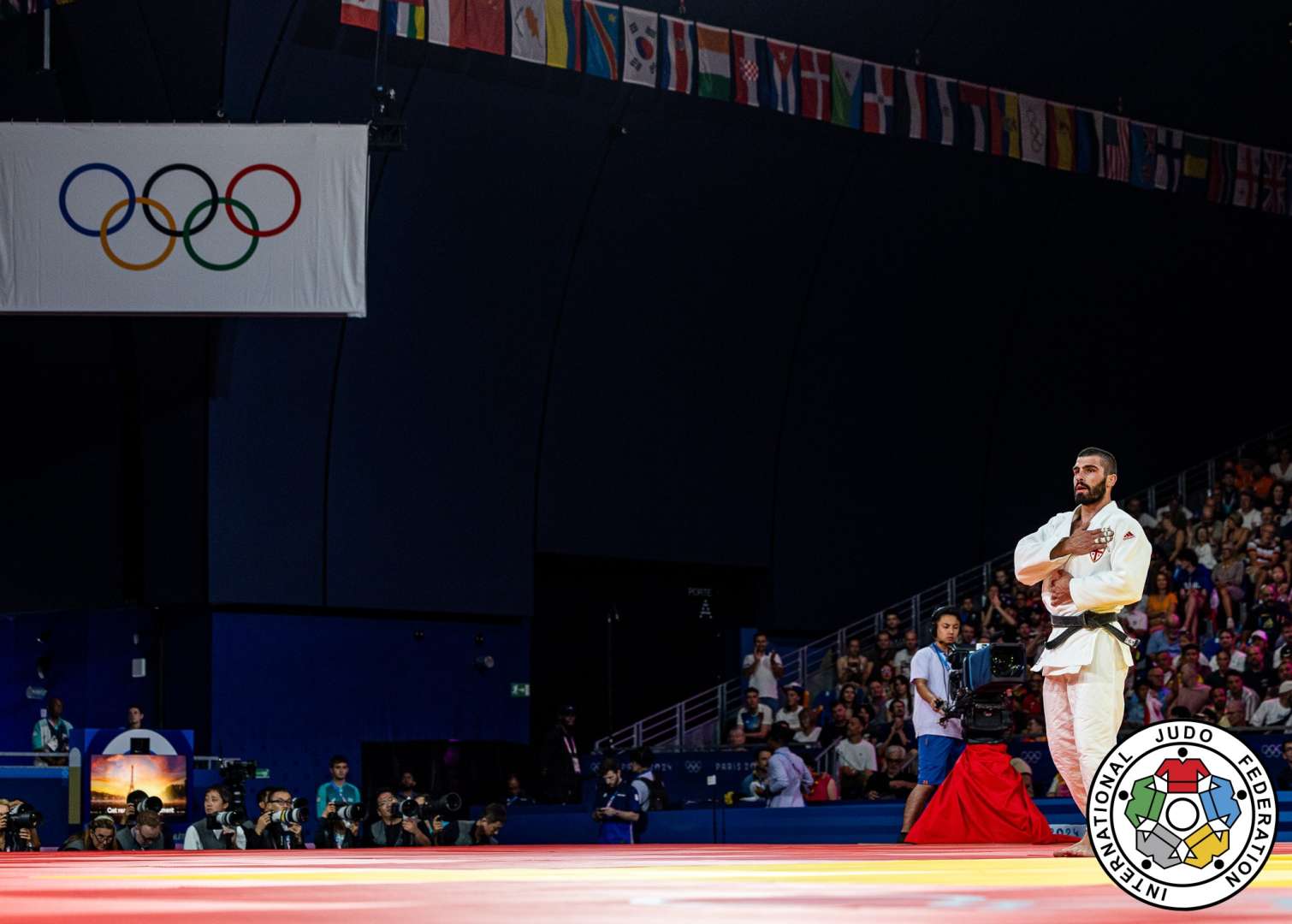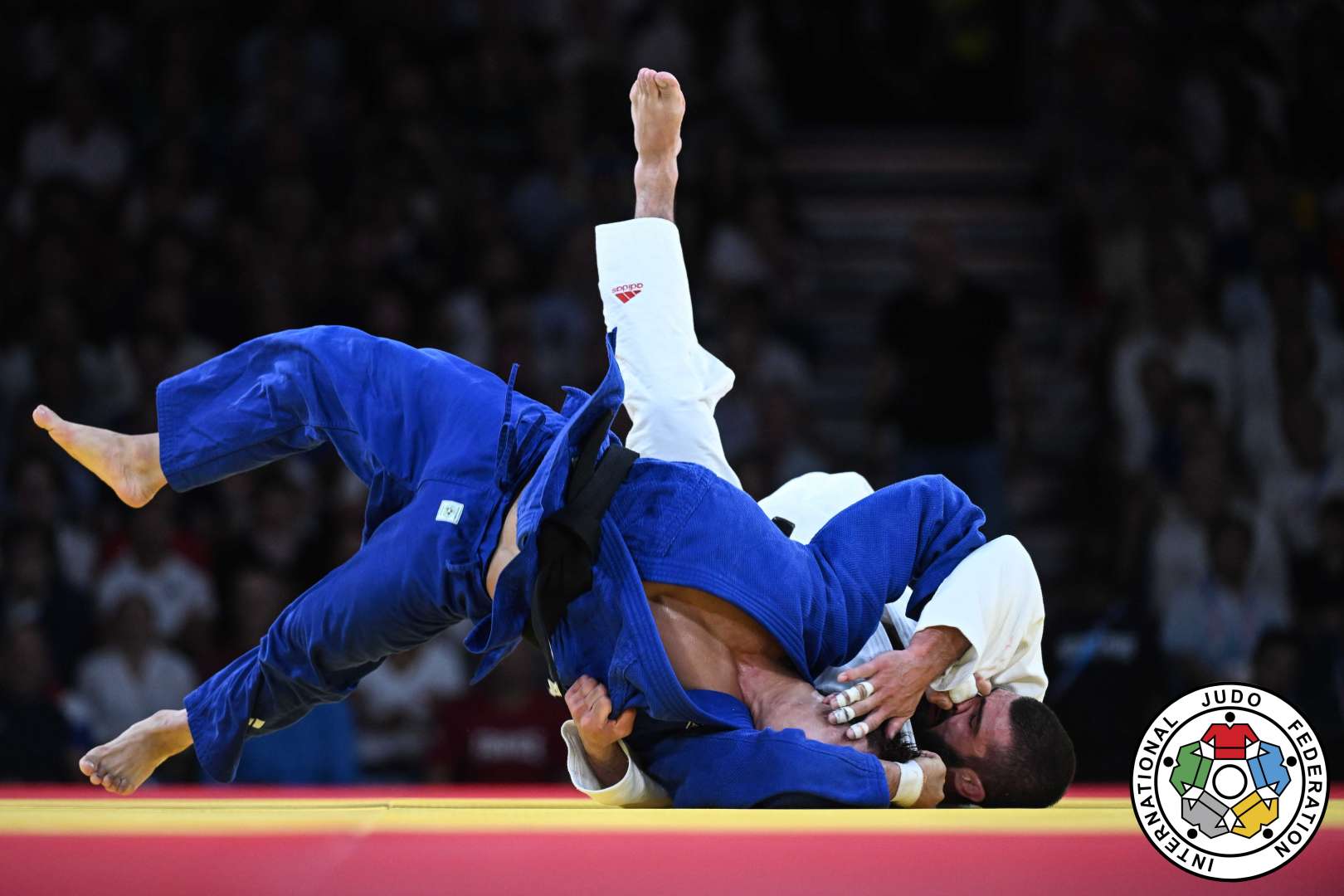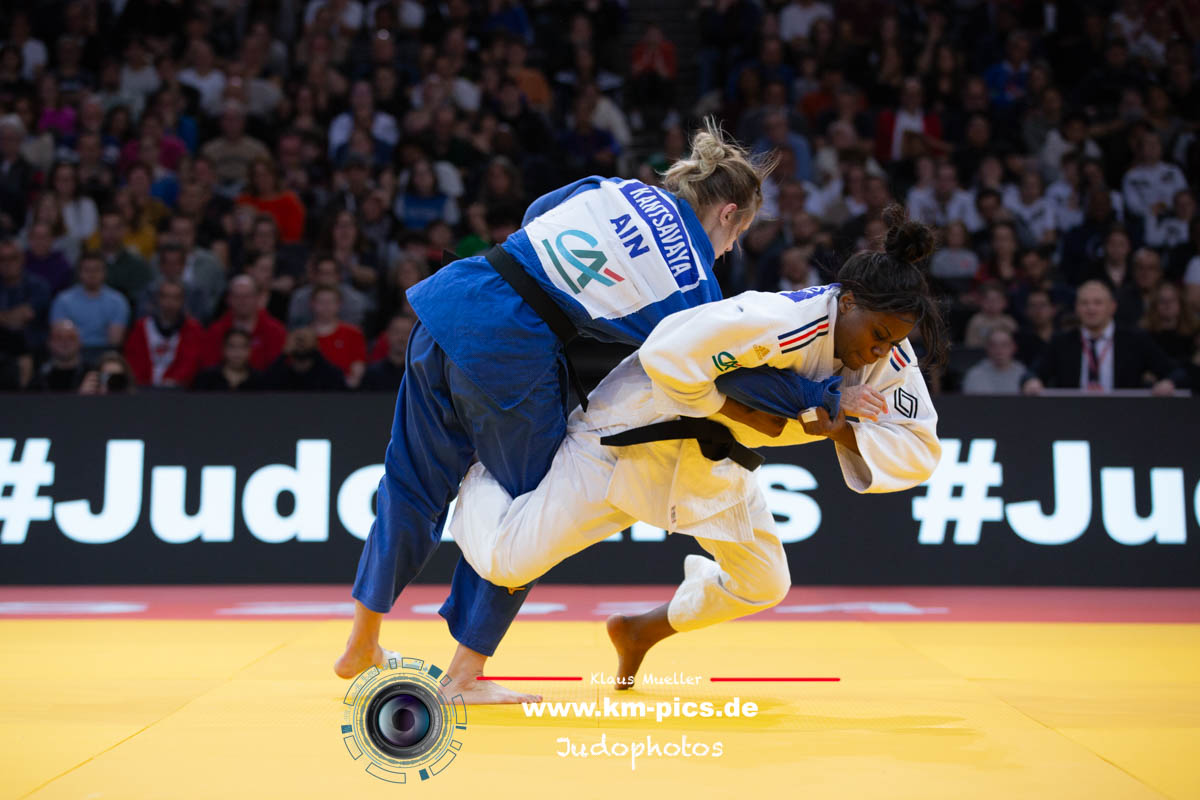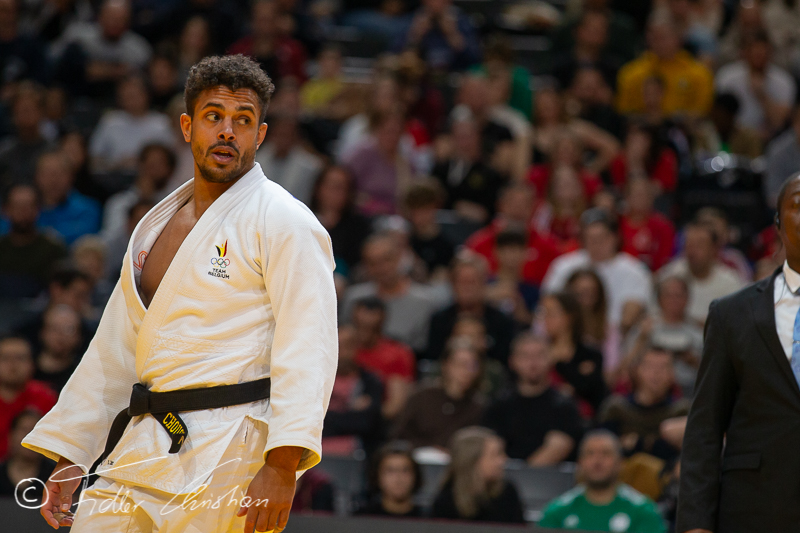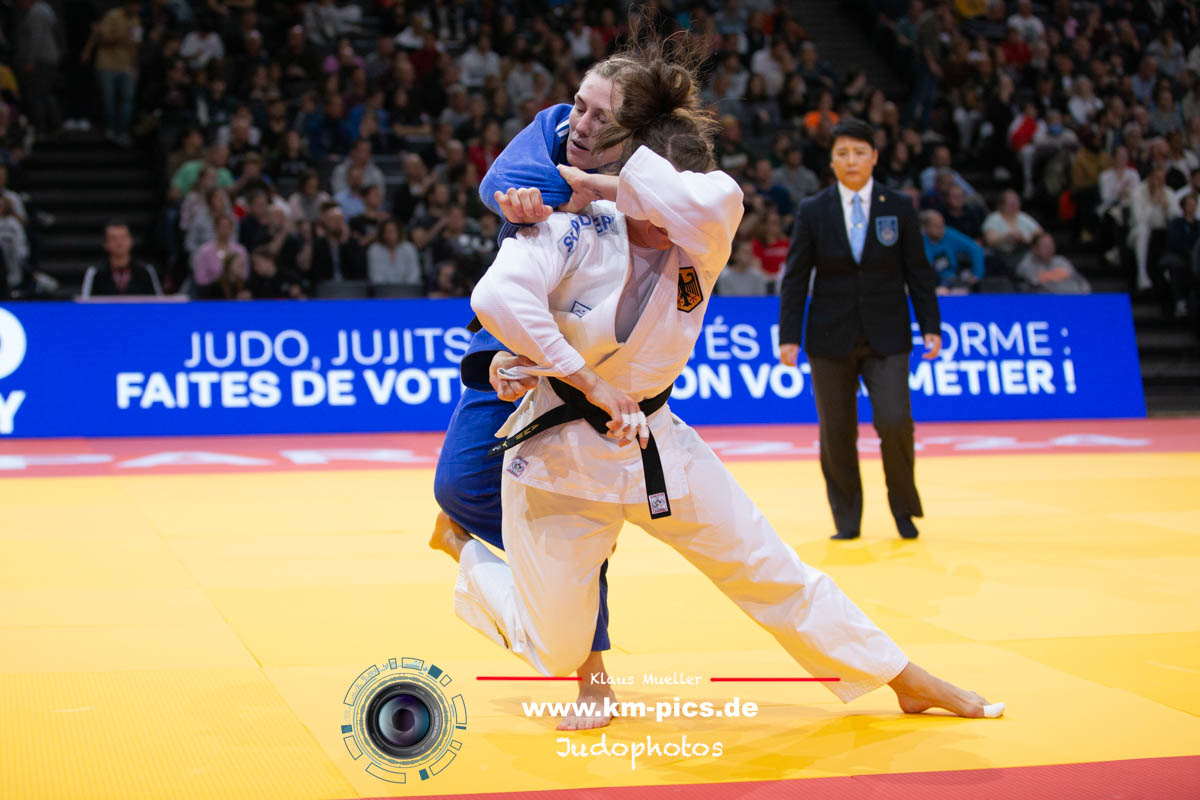Aaron Wolf showcases welll-timed Japanese domination
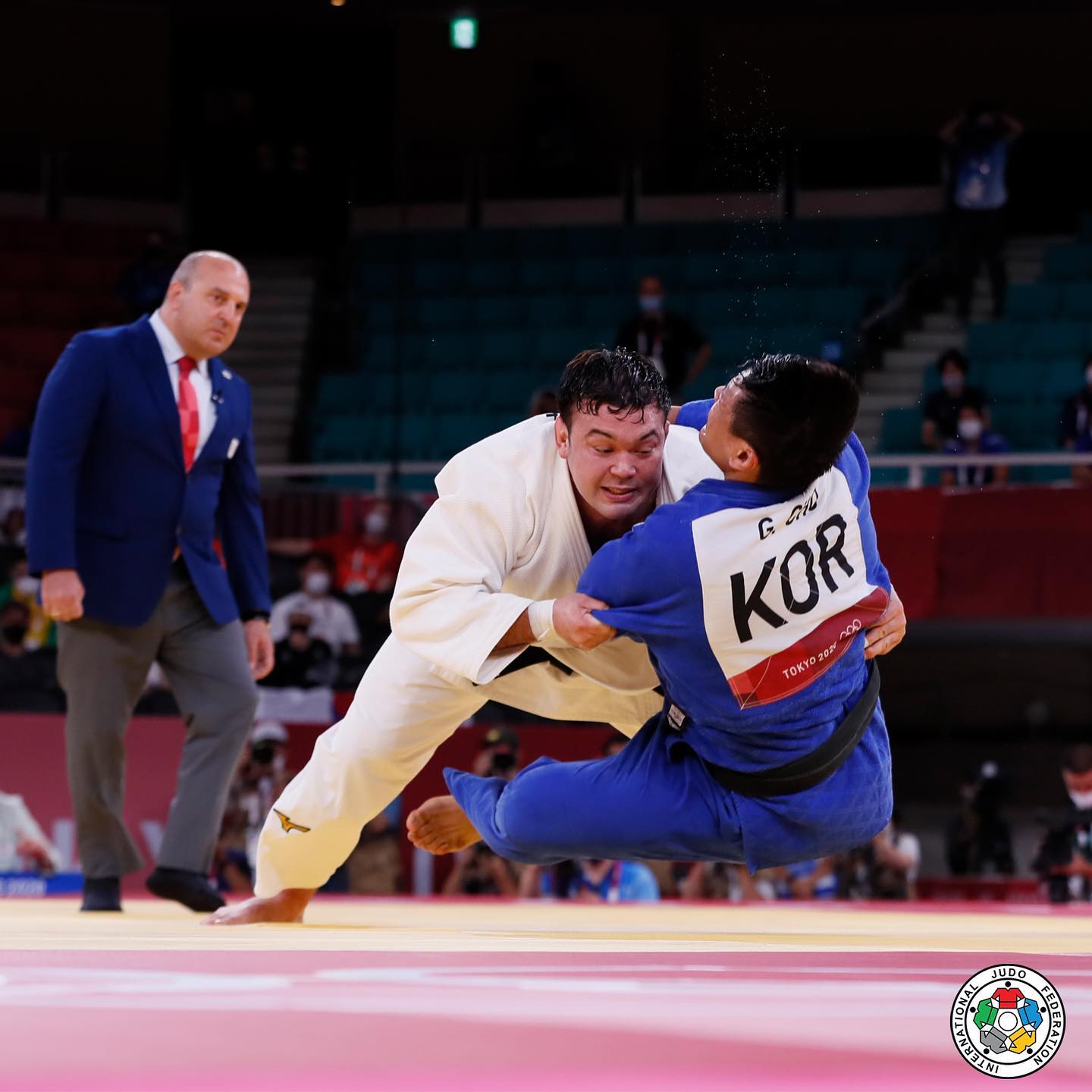
 29 Jul 2021 17:40
29 Jul 2021 17:40
 IJF Media and JudoInside
IJF Media and JudoInside
 IJF Media Team / International Judo Federation
IJF Media Team / International Judo Federation
The domination of the Japanese team, led by Kosei Inoue, is obvious. The medal hunt has already exceeded his bet, has the ability to raise their level in crucial moments. In men's competition, Aaron Wolf (JPN) came out on top in the U100kg weight class after five minutes and 35 seconds of golden score and two penalties awarded to both fighters; a lengthy tussle ended with an ippon against Cho Guham (KOR). Japan collected eight golds at Tokyo 2020.
The two finalists proved to be the most stable men of the day. Almost impossible to throw, precise with their hands and in their attacks, the electricity between these titans promised to be epic. For four minutes of normal time and more than 5 minutes of golden score, the two champions totally neutralised themselves and nothing seemed to differentiate them. After minutes and minutes of intense kumi-kata, Aaron Wolf put an end to the suspense by scoring a magnificent ippon with a perfectly executed o-uchi-gari. When an athlete is capable of raising his level as Wolf did for a tiny moment in time, it produces beautiful results. Wolf wins his first Olympic gold and the 8th for Japan. Cho became the first athlete representing Republic of Korea to claim a medal in the men -100kg event since 2004, when Jang Sung-Ho claimed silver in this event.
Aaron Wolf said: "My physical condition was not good today but I’m happy because it is the first title for Japan in this category since Sensei Inoue and I’m double happy because it was the last major title to achieve in my career, after the worlds, the Asian and the national Japanese title. I was crying on the mat for all those reasons."
Aaron Wolf gave Japan an eighth gold medal in judo at the Olympic Games Tokyo 2020, equalling the record for most gold medals in judo at a single Olympic Games (8 by Japan in 2004). Japan have now won eight of the first 12 judo events at the Olympic Games Tokyo 2020.
Wolf became the third judoka from Japan to win the Olympic title in the men's -100kg event, after Ninomiya Kazuhiro in 1976 and Inoue Kosei in 2000. Wolf became the first judoka to win Olympic gold in the men U100kg event on home soil.
Portugal’s Jorge Fonseca is well known for his impressive explosiveness but he's also known for having some difficulties when matches get longer. Today against Shady El Nahas he faced another explosive athlete who is capable of competing for longer but the double world champion secured a first Olympic podium place after scoring at the right moment, less than 30 seconds to the end. The most complicated part was to keep that advantage, which he did brilliantly. Jorge Fonseca (POR) handed Portugal its third Olympic medal in judo, after bronze medals by Nuno Delgado in the men U81kg in 2000 and Telma Monteiro in the women U57kg in 2016.
Jorge Fonseca said: "I’m happy but there is always a but! It was feeling great and fighting as well as in Budapest, until the semi-final when I had cramps in my hands. I could not do my judo with such pain but in the end I managed to get the bronze, so not bad at all."
The second bronze medal went to Niiaz Iliasov representing the Russian Olympic Committee, who scored a waza-ari against Varlam Liparteliani (GEO), despite him trying everything to run after Iliasov at the end of the match but with no success. It was an emotional Iliasov who left the mat, winning a second medal for Russia and the first for the male team. Iliasov became the second judoka of Russia to win a medal in two days.
Semi finals
The first semi-final was already a must see between Varlam Liparteliani and Aaron Wolf. The later champion had been very strong the whole day, perfectly controlled the semi-final, building his attacks step by step, executing at the right moment to score a waza-ari. Liparteliani remains one of the most successful and consistent athletes of his generation, appreciated on and off the mat and he is now also a member of the IJF Athletes’ Commission.
In the second semi-final we found the current and double world champion Jorge Fonseca, who is always so spectacular, even when in a bit of trouble against Niiaz Iliasov in the quarter-final. He had to wait until the golden score period to finally come up with the win. Almost as spectacular, but a little less of a showman, Cho Guham (KOR) also qualified for the semi-final, in what promised to be an explosive match. It was explosive but with no score until 16 seconds from the end, when blocked in one corner of the contest area, Cho was obviously preparing an attack and it came in the form of a left handed ippon-seoi-nage, earning waza-ari. For a few more seconds, Fonseca ran after an escaping Cho, who could then enjoy being qualified for the first Olympic final of his career. Fonseca went on to the bronze medal match.
Repechage matches
Shady El Nahas (CAN) and Peter Paltchik (ISR) have been prominent players of the past months, performing regularly on the circuit but one had to step off the mat after the bout between them. With 45 seconds into the golden score period, Shady El Nahas scored ippon with an o-uchi-gari that started inside the competition area and finished just outside the security zone. The attack, totally valid, gave Canada another opportunity to win a medal.
Winner of Grand Slam Hungary 2020, bronze medallist in Tel Aviv this year and fifth at the European Championships, Niiaz Iliasov (ROC), who was close to upsetting the current world champion during the preliminary rounds, was present in the repechage against former world bronze medallist Karl-Richard Frey (GER), who flirted with the best of the category, but not enough to pass Iliasov, who won by waza-ari.
 like
like
 share
share

| Result | City | Date |
|---|---|---|
| 2 | Paris | 2024 |
| 1 | Abu Dhabi | 2024 |
| 1 | Zagreb | 2024 |
| 3 | Belgrade | 2023 |
| 2 | Montpellier | 2023 |

